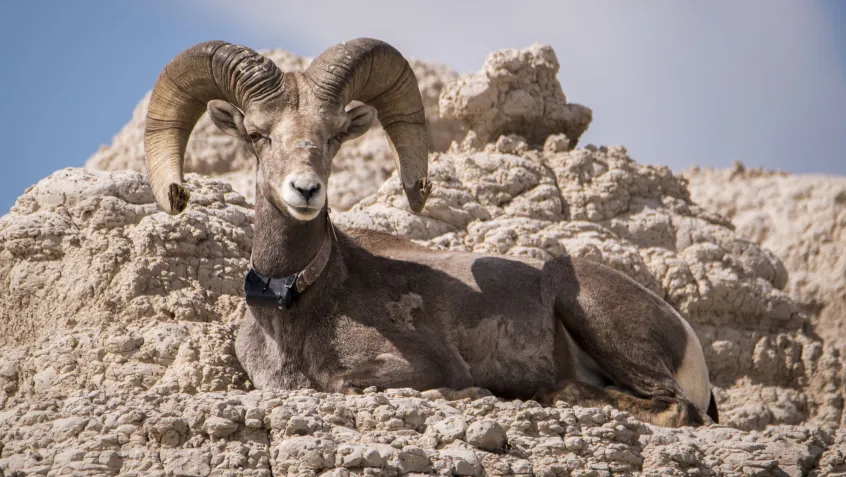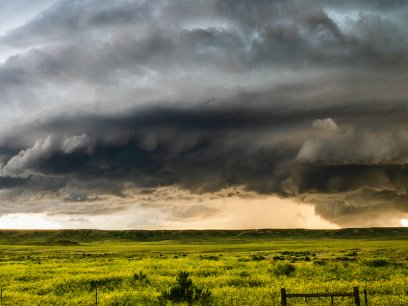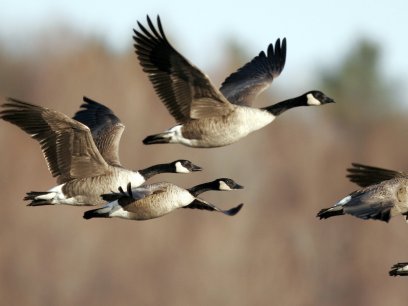Story
Coexisting with Wildlife During Drought

While it might be hard to believe if you're currently in the rainy Mid-Atlantic, as of July 24, 2018, about one quarter of the United States land area is being affected by drought. Drought conditions send wildlife in search of food, water, and cover—which means some animals travel farther than usual and into more developed areas. Drought impacts wildlife in many ways:
- Hungry deer, bears, raccoons, and other wild animals search for food. Deer, elk, and bighorn sheep may forage closer to roadways, making them more susceptible to collisions with vehicles. With fewer berries and acorns available, bears will eat garbage, grease from barbecues, bird seed, and sugar water from hummingbird feeders. Raccoons may seek out garden vegetables and pet food.
- Less grass and vegetation growth reduces cover for waterfowl nests and young deer, antelope, and elk, making these animals more vulnerable to predators.
- Dwindling water sources and lower plant growth can reduce insect populations—especially mosquitoes. While humans may not mind fewer insects, animals like bats need to eat insects to build fat reserves for migration and hibernation.
- Less water means less available habitat for waterfowl, beavers, muskrats, and other animals. Crowding into smaller spaces for access to food, water, and habitat makes these animals more susceptible to diseases, predators, and competition with other animals.
Drought conditions often increase interactions between humans and wildlife. You can prevent conflicts with your wild neighbors by reducing food temptations around your home:
- Store garbage, pet food, and horse and livestock grains inside. Dispose of garbage regularly and wash out trash cans to reduce odors.
- Clean barbecues after each use to reduce grease and odors. If possible, store barbecues inside a garage or building.
- Regularly clean up areas underneath bird feeders. If bears are a major problem in your area, consider removing bird feeders until winter.
- Clean up fallen or rotting fruits and vegetables in yards and gardens. Rotting fruit attracts bears, raccoons, and skunks.
Sources:
- Colorado State University Cooperative Extension. 2015. “Impacts of Drought on Wildlife.” Accessed September 15. http://www.ext.colostate.edu/drought/wildlife.html.
- Idaho Fish & Game. 2012. “Prevention Safest Way to Avoid Wildlife Conflicts.” Idaho Fish & Game News 24(5):1-2. http://fishandgame.idaho.gov/public/docs/fgNews/2012may.pdf.
- National Integrated Drought Information System. 2018. "Where is Drought This Week?" Accessed July 24. https://www.drought.gov/drought/
- Wisconsin Department of Natural Resources. 2012. “Drought Impacts on Wildlife.” Accessed September 15, 2015. http://dnr.wi.gov/topic/wildlifehabitat/drought.html.
Topics


